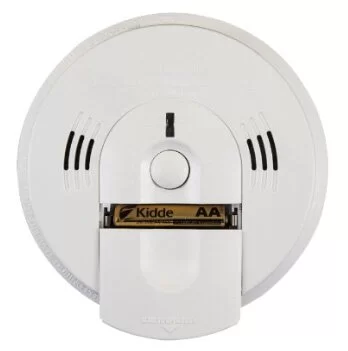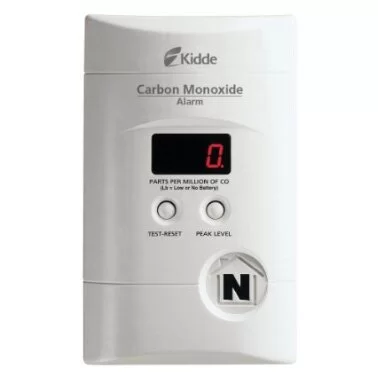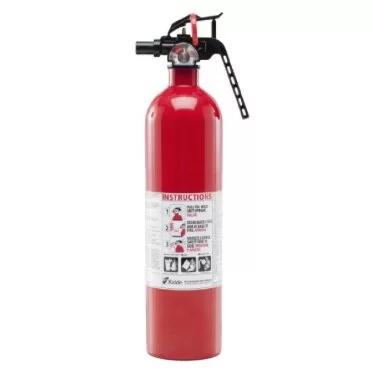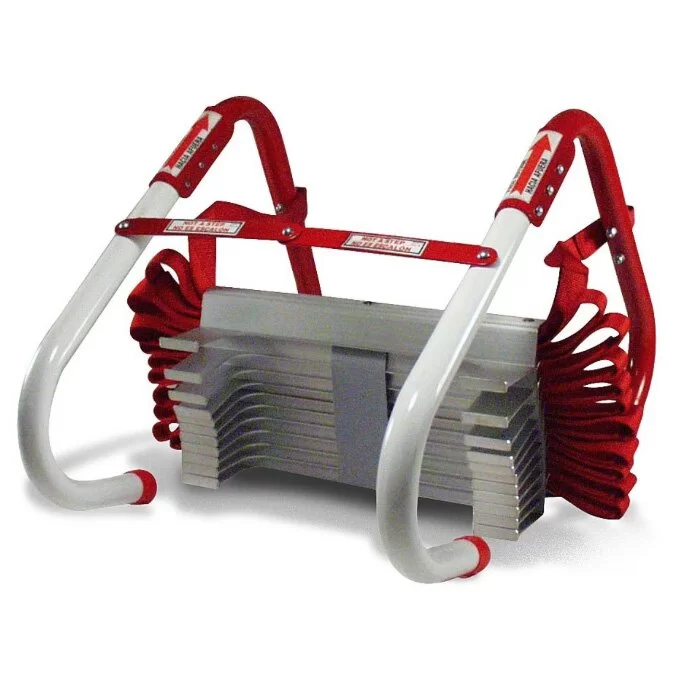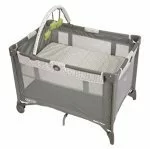Home Fire Safety
Home fire safety is something that shouldn't be overlooked when baby proofing your home because it is relatively easy to do and takes only a little bit of planning and preparation. Educating yourself on potential fire hazards and the devices that should be in place in your home will not only help keep your family safe but they will provide valuable peace of mind.

In addition to having adequate fire safety devices in your home and knowing how to use them, a fire safety plan that both you and your children are familiar with is highly recommended. In the event that a fire starts in your home the difference between survival and serious injury often comes down to a matter of seconds.
Every year in North America there are hundreds of thousands of house fires that result in expensive property damage, serious injury and death. A home fire safety plan combined with fire safety equipment will help keep your family safe in the unfortunate event that a fire starts in your home.
You might not know that in a home fire the greatest danger to your family is the smoke and poisonous gases created by burning materials. A few other facts about fires that you should be aware of:
- One out of every four people will experience a fire in their lifetime resulting in property damage, injury or death
- The kitchen is the most common area that house fires start and are often the result of careless cooking practices
- Children are are more likely than adults to sustain serious injury in a house fire
As you continue reading please keep in mind that common sense and good judgement are the best way to prevent accidental fires. If you have a newborn or small children it's important to use extra caution and educate your children as soon as they can understand the dangers associated with fire which is usually around 3 years old.
Home Fire Safety Guide
It's important to know the fire hazards in the home so you can talk to your children about safe practices before an accident occurs. Fires are often caused by carelessness or accidents that can usually be prevented with a little bit of education. If you are still unsure about exactly what you need to do we recommend contacting your local emergency services for more information.
We'll go over each area of your home with some advice on fire prevention as well as safety devices that should be installed so you have the means to prevent, detect and if possible help reduce damager to your property.
Kitchen Fire Safety
Kitchen fires are the number one cause of home fires in North America. They are often the result of cooking either when grease or fat ignites or when items are kept too close to the fuel source.
A few tips to help prevent fires in the kitchen include:
- Never leave cooking food unattended whether on the stove, in the oven or microwave
- Always keep the stove and counter area clear of items like towels, curtains and aprons
- Keep pot and pan handles turned towards the back of the stove to prevent being pulled down by your child
- Always turn off the stove and elements when you are finished using them
If a fire starts in the kitchen it's important to quickly assess whether it can be controlled safely or if you require emergency services. If you are unsure, immediately remove yourself and loved ones from the house and call for help.
Home fire safety devices that should be present in your kitchen include:
- A smoke alarm that uses photoelectric technology should be kept just outside your kitchen area
- A fire extinguisher with at least a BC rating should be kept easily accessible and in good operating condition
Bedroom Fire Safety
Many fatal fires occur when home occupants are asleep and unaware of any danger. A fire can grow exponentially in a matter of seconds and the fire, smoke and toxic gasses can be fatal before victims even wake up.
Tips to help prevent fires in common areas of the home include:
- Candles should only be used while under direct supervision and should not be used by children
- Always keep candles in holders and away from flammable items
- Electrical and extension cords should be in good condition with no frayed or cracked sections
- Portable space heaters should be kept a safe distance from flammable items and turned off at night or when you are not at home
- Smoking cigarettes in bed or when you are drowsy (or intoxicated) should be avoided
The incident of candle related fires has increased in recent years with the popularity of incense and aromatherapy. If you use a candle in your home or bedroom make sure it is fully extinguished before leaving it unattended or falling asleep.
Fire safety devices that should be present in sleeping areas in your home include:
- A smoke detector that uses ionization technology or a combination alarm that used both ionization and photoelectric detection
- A carbon monoxide detector should be used in a common area near the bedrooms
- If bedrooms are on the second floor or higher a fire safety ladder should be located near the window or in the closet for easy access
- A fire safety plan should be in place especially if you have small children
Garage Fire Safety
In most homes the garage is attached and a fire can go unnoticed until it has grown and got out of hand. Many potentially hazardous items are located in the garage and are highly flammable.
Tips to help prevent garage fires:
- Gasoline and other flammable liquids should be stored in approved safety containers and kept out of reach of children
- Power tools should be used only as recommended by the manufacturer and with caution around flammable liquids
- Never leave a vehicle idling inside the garage
- Children should always be supervised when in the garage.
Smoke detectors and carbon monoxide detectors are not recommended for use in a garage and in some cases are prohibited. The only fire safety device recommended for use in garages is an ABC rated fire extinguisher in the event of a small fire.
Basement Fire Safety
The basement or family recreation room areas vary depending on your home and require some special attention especially where your furnace or fireplace are located.
Tips to help prevent basement and common area fires:
- Always keep your fireplace chimney and furnace professionally maintained
- Keep flammable materials such as paint in approved containers and out of reach of children
Whenever possible try to keep flammable and dangerous items in a locked storage area so that children don't have access. Approved safety containers will ensure that fires won't start from leaks or spills.
Home fire safety devices that should be used in basement or common areas include:
- A combination smoke detector and carbon monoxide detector but not in the furnace room
- ABC rated fire extinguisher
Fire Safety Tips for Kids
In a home fire, children are at the highest risk of serious injury or worse because their instincts aren't always correct and if a child is too young they won't be receptive to education quite yet. There are several things you can do to prepare your children for a fire including a fire escape plan.
A fire escape plan should be simple and easy for children to follow in the event of an emergency. In addition to having the required safety devices in place the plan should include the following:
- A drawing of the floor plan of your home with all doors and windows
- Identify at least 2 exits from each room in your home
- All windows and doors should open easily allowing access outside
- Choose a meeting place outside in front of your home and a safe distance away
- Everyone including children should be aware of the plan
- Keep the plan in a visible location like on the fridge or bedroom wall
- Practice the drill with your family
- Learn emergency numbers including local fire department
In addition to a fire escape plan and installed home fire safety devices there are a few tips that could save your child's life in a fire.
- Keep all flammable items out of reach of children at all times
- Children should never play with matches or lighters
- Go over the Stop, Drop and Roll exercise
- Stay low and crawl to avoid harmful smoke and toxic gasses
Fire Safety Equipment
Home fire safety equipment is essential in detecting fires and harmful gasses so you and your family can get out safely. It's unfortunate but even when all precautions are taken all fires can't be prevented. The importance of detection can't be overstated and that's where fire safety equipment can save your life.
Smoke Detectors
Home smoke detectors are required by law to be installed in your home and it's recommended that they are placed on every level ideally near the kitchen and bedroom sleeping areas.
Smoke detectors should be tested regularly to ensure they are working properly every year. If they are battery operated the batteries should be replaced every year and the units themselves replaced every 10 years.
Home Carbon Monoxide Detector
A carbon monoxide detector is recommended and required by law in some states and provinces. The danger of CO poisoning is present in all homes and because it is odourless and colourless it can sometimes go completely unnoticed until it's too late.
Areas of your home that should be considered are living and sleeping areas especially where children are present that are at a higher risk than adults.
Home Fire Extinguisher
A fire extinguisher is recommended for areas such as the kitchen or garage and may be the difference between extensive property damage and potential injury or even worse.
An extinguisher should be placed in an easily accessible location for quick and timely operation in the event of a small fire in your home. Always allow an escape route when using and if you feel unsafe, get out and call 911.
Fire Safety Ladders
A fire safety ladder is recommended for any second story rooms and especially bedrooms. In the event of a fire where your or your child is trapped, the only option may be to escape from a second story or higher window.
Home fire safety ladders should be placed in an easy to reach area either under a bed or nearby closet. It's important to go over the operation of the escape ladder so it can be used effectively.
Home fire safety is something that every parent should spend some time getting familiar with because it could be the difference between escaping safely and sustaining serious injury or causing costly damage to your home. It's important to go over everything with your children as soon as they are old enough to understand.
Each home has unique hazards and challenges that will be faced in the event of an emergency situation and if you have any questions or concerns you should contact your local fire department or emergency services.
Just as every home is unique there are times of the year that unfortunately present higher levels or danger to you and your family. We've put together helpful home fire safety information about christmas fire safety for tips and advice over the holidays.
